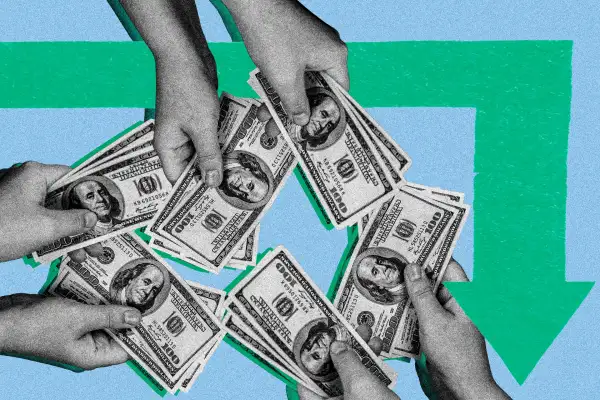CD Rates Are Starting to Drop. Is It Too Late to Buy?

Payouts from certificates of deposit (CDs) are already beginning to fall in anticipation of benchmark interest rate cuts from the Federal Reserve later this year.
Due to their attractive APYs, CDs have become an increasingly popular, safe option for folks to park their savings. However, the days of CD rates above 5% are probably numbered. In recent weeks, several major online banks, including Ally, Barclays, Discover, Marcus, Sallie Mae and Synchrony, have started slashing their 12-month CD rates.
For instance, 12-month CDs at Barclays now come with an APY of 4.25% at press time. Sallie Mae lowered its APY from 5.5% to 5.25% over that same period. Discover, Marcus and Synchrony have all cut their CD rates in recent weeks too.
During Ally’s latest earnings call on Jan. 19, CFO Russ Hutchinson said the bank has cut CD rates twice already in January and signaled more are coming in 2024.
Why are CD rates falling?
The APY you earn on your CD is largely based on trends with the Federal Funds rate, which is set by the Federal Reserve. When the Fed began hiking rates back in 2022 in an effort to rein in out-of-control inflation, one welcome side effect for savers was that APYs across deposit accounts, such as CDs, savings accounts and money market accounts, started to rise in tandem.
Because the Fed's strategy to tame inflation has largely proven successful — and consumer prices have moderated — the nation's central bank is almost universally expected to begin cutting rates in 2024.
The question, now, is not if the Fed will cut rates; rather, it’s when and by how much. The Fed decided to keep rates steady on Wednesday, but it will meet eight more times in 2024, giving it eight more opportunities to cut them. According to the CME FedWatch Tool, the earliest most investors expect the Fed to begin cutting rates is at its next meeting, in March.
Many bankers don’t expect rate cuts to happen until the second half of the year. Still, with several cuts on the horizon, some banks have already begun preparing by lowering the APYs on their CDs, whose terms could be locked in long past the time the Fed lowers rates.
Should you lock in high CD rates now?
While they differ on the exact timing of the Fed rate cuts, economists, investors and advisors are all in near unanimous agreement that rate cuts are coming in 2024. That means the APYs on CDs have nowhere to go but down as the year progresses.
That said, CDs aren’t for everyone. Once you open a CD, you typically must keep the money in the account for the selected term (often between one month and upwards of 10 or more years) for it to be a good investment.
If you withdraw the money before the CD's term ends, banks typically charge early withdrawal fees, which are penalties on the interest you’ve accumulated at the time of the withdrawal. These fees can significantly eat away at the advertised APY.
Given that caveat, CDs aren’t always the best recommended place to put an emergency savings fund — since that money needs to be readily available in the event of a major, unexpected expense.
Lawrence Sprung, founder and wealth advisor at Mitlin Financial, recently told Money that one way savers can take advantage of attractive CD rates while keeping their savings liquid is through a strategy called CD laddering. In short, you can spread a portion of your savings across CDs with various terms, such as three months, six months, one year and five years, for example.
"So you'll have rates locked in," Sprung said. "You may get a blended rate that may not be the best rate available, but you'll get close to it and also have some liquidity and availability to that money."
More from Money:
These Are the Best Banks in America for 2024
FAFSA Delays Will Push Back College Financial Aid Timeline by Months
Early Retirement Savers Are Burning Out. ‘Coast FIRE’ Might Be the Answer

